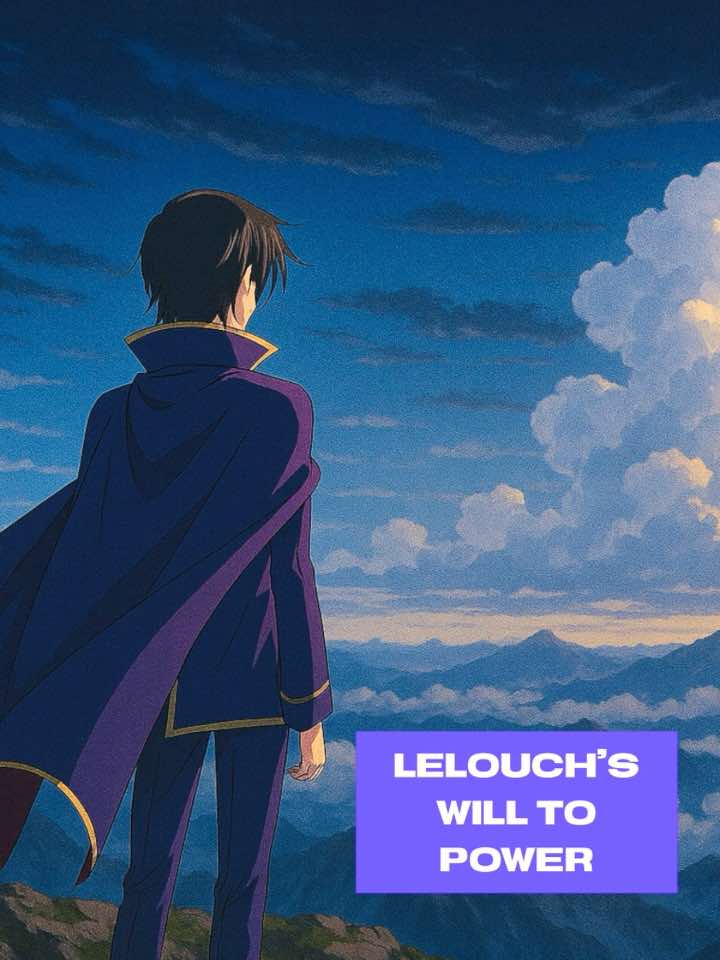Nietzsche and Lelouch: The Will To Power in Code Geass
Nietzsche spoke of the Übermensch—the overman, the one who dances above the ruins of old morality and dares to create new values. Lelouch is not merely a king or a rebel or a martyr. He is one who chooses, even as the world hurls stones at his crown. He is the child of a dead god and a dying empire, and he does not weep. He acts.
He is no saint. He lies. He manipulates. He destroys. But this, too, is the path of the Übermensch—to burn the old temples if need be. To destroy false gods with fire and cunning. Not out of cruelty, but out of necessity. Out of vision. Lelouch carries the burden of those who see too clearly. He does not ask permission. He writes his own scripture in strategy, sacrifice, and blood.
And yet—he suffers. He is alone. The weight of his will isolates him. But still he moves. Still he dares. And in that, Nietzsche would not see a monster. He would see affirmation. He would see a man who became more than man. Not by accident. Not by birthright. But by will.



